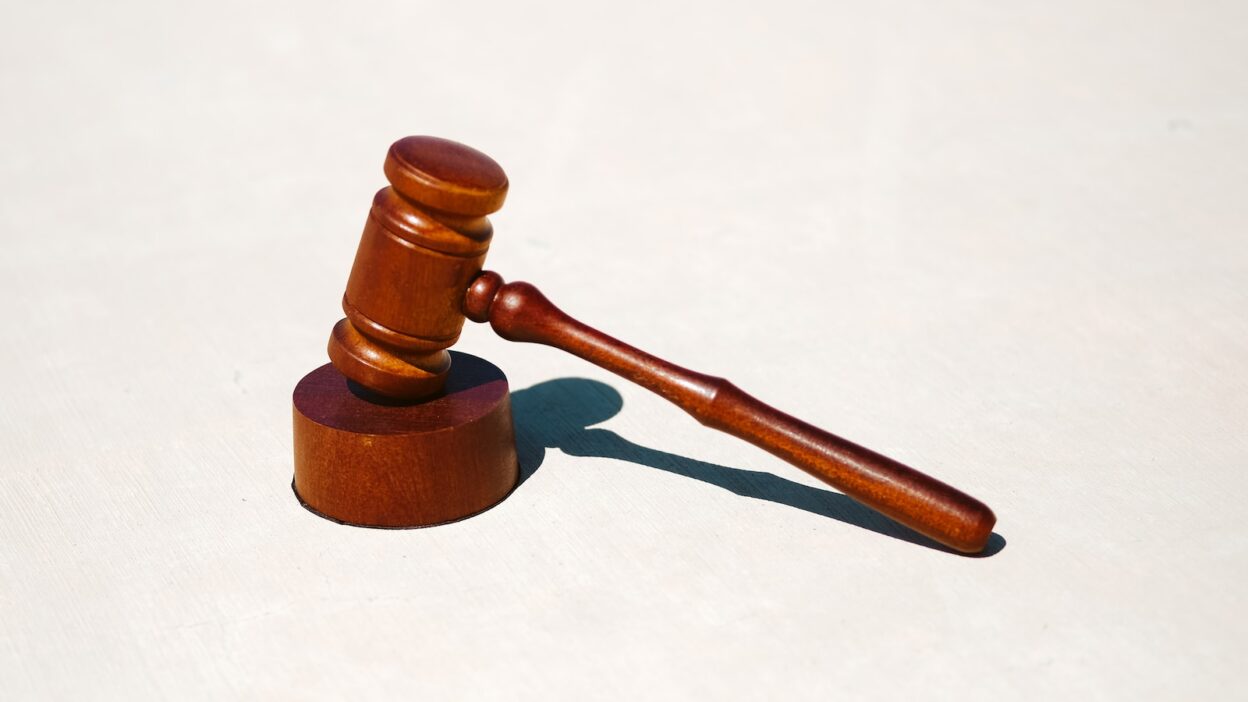Media Hysteria
Some people never look beyond sensational headlines, and are often taken in by the hysteria whipped up by our politicians, media, and right wing extremists. The issue of Shariah is a prime example. Most of the debate and discussion surrounding shariah courts has been ill informed and severely tainted with prejudice. What is Shariah? And what are Shariah courts? If you really want to know the truth behind the hype, then read on.
Law in the UK
Before we address the issue of Shariah law, we need to ask ourselves: what exactly is law? Law can be divided into two main types: criminal law and civil law. Criminal law is always a matter for the police and courts; we have no choice in this. However in the UK (as with most countries) there is flexibility with regards to civil law. So a divorcing couple can decide on their joint property in court, or they can come to a mutual agreement, or they can ask a third party to arbitrate. It’s up to them. Likewise a person can write a Will, leaving his estate to his family, or to his favourite charity, or even to the dog! So, taking the example of inheritance; although the issue of inheritance is a legal one, the individual is given complete freedom on how to apply it.
What is Shariah
The Shariah covers all aspects of a Muslim’s life including laws relating to personal acts of worship, laws relating to commercial dealings, laws relating to marriage and divorce, and penal laws. Sharia law is based upon the Qur’an, and sayings and conduct of the Prophet Muh̩ammad (peace be upon him).
The concept of law in Islam is very different to the Western notion of law. For example, Shariah law tells that we must pray times a day, that we cannot eat pork, that we must respect our parents, that we don’t drink alcohol, and so on. In the West, such issues would come under ‘lifestyle choice’ and wouldn’t be considered ‘legal issues’. In a Muslim country, the government (and only the government) can also implement Shariah law in criminal matters, for example the death penalty for murder and for rape.
Jewish Courts in the UK
The existence of Jewish courts in the UK further demonstrates that civil matters (such as divorce or inheritance) are not strictly matters for the State. For instance, in Finchley, London, resides one of the Jewish Beth Din courts, which is a rabbinical court of Judaism. English law states that any third party can be agreed by two sides to arbitrate in a dispute, and in this case the institutional third party is the Beth Din. Under the Arbitration Act, people who seek justice through these courts are legally bound to their conclusions by UK law. Such courts deal with a whole range of civil matters ranging from divorce cases to family disputes over inheritance distribution, to business partnerships gone sour. Jewish courts are in daily use in Britain and have been for centuries resolving civil disputes. Jewish people have a choice whether to use these courts or not. They provide a much needed service to their community that is usually quicker and much less costly than going through the civil courts.
Shariah Courts in the UK
Currently Muslim courts also exist, but unlike their Jewish counterparts, have no legal recognition. Like their Jewish counterparts, a Muslim Shariah court deals primarily with marital and other family disputes, and participation is entirely voluntary. At times the Shariah court acts as an adjudicator, i.e. both parties agree to allow the Shariah court to make a final decision. At other times the Shariah Court will merely help the two parties resolve their conflict by bringing them together and suggesting ways forward. This is similar to the conciliation process in employment disputes, where organisations such as ACAS may bring together employers and trade unions to reach a resolution of an employment dispute.
Both the Jewish Beth Din and the Shariah courts are considered as an alternative dispute resolution (ADR) process (i.e. alternative to the courts). In fact, the UK government recently announced that it may refuse legal aid for taking a case to the court where there are appropriate alternative dispute resolution processes available.
Alternative dispute resolutions in the UK
Alternative dispute resolution systems exist not only because of cultural and religious sensitivities, our schools often try to sort out minor criminal incidents ‘in house’ without involving the Police, the military have their own courts with a modified form of law, even MP’s have what is called the electoral commission which metes out punishments to misbehaving MP’s.
If two Muslims are happy to accept the arbitration of a third party regarding a personal situation, why is it that a tolerant multicultural Britain can’t accept that? Dr Prakesh Shah who is a senior law lecturer at Queen Mary University and author of “legal pluralism in conflict” believes that such systems should be seen as integrated and complimentary rather than a parallel legal or two-tier system.
Catholic law: A two-tier legal system
Catholic priests in the UK do not disclose any information to authorities that they obtain during a confession. This is known as the Seal of Confession in the Roman Catholic Church. Under the Roman Catholic Law “It is a crime for a confessor in any way to betray a penitent by word or in any other manner or for any reason. A priest, therefore, cannot break the seal to save his own life, to protect his good name, to refute a false accusation, to save the life of another, to aid the course of justice (like reporting a crime)…” (Code of Canon Law: 983.1).
So a man can commit a murder, and then confess to a priest. And the priest will not report this to the authorities, even if it is likely that he may kill again. Where is the justice for the family of the deceased ? This is a law within a law. In Ireland, the application of the Seal of Confession resulted in priests concealing the rampant sexual abuse that was occurring within their churches.
Muslims are religiously forbidden to hide such a crime from the authorities. For example, regarding murder, the Quran states: “whoever kills a soul has indeed killed the whole of mankind whoever saves a soul has saved the souls of the whole of mankind”. Thus a Muslim Imaam, or any other Muslim for that matter, must report a crime, or a plot to commit a crime to the authorities. This is a religious duty, and to do otherwise is considered treachery.
Criminal Law of the Shariah
The media has led many people to equate Shariah courts with the penal code (i.e. punishments for certain crimes) of the shariah. However the two are completely different; the Shariah courts in UK have only ever covered personal law and not criminal law. Similar to Jewish law, the criminal law in Islam has strict punishments for certain crimes. For example the Old Testament has a number of rulings pertaining to capital punishment. For example, the death penalty is prescribed for murder (Exodus 21:12), kidnapping (Exodus 21:16); adultery (Leviticus 20:10); homosexuality (Leviticus 20:13), prostitution (Leviticus 21:9) and rape (Deuteronomy 22:24-25). One is forced to ask why Jewish Beth Din courts are not subject to the same media frenzy and why MP’s are not up in arms that they have been given legal recognition. Is it because they know that the Jewish Beth Din courts cover only cover civil matters? Then what about the Shariah courts, it is well known that they also only cover civil matters. It is only due to Islamaphobic scaremongering that Shariah courts are targeted.
In conclusion, we see that such systems (Muslim and Jewish courts) already exist in the UK and are working hand in hand with the civil system and not in opposition to it. The Shariah courts, and the Beth Din, are an alternative way of resolving disputes, preventing martial breakdown, saving valuable court time, and saving the tax payer millions of pounds in legal aid fees. Remember, shariah courts = personal law only.





